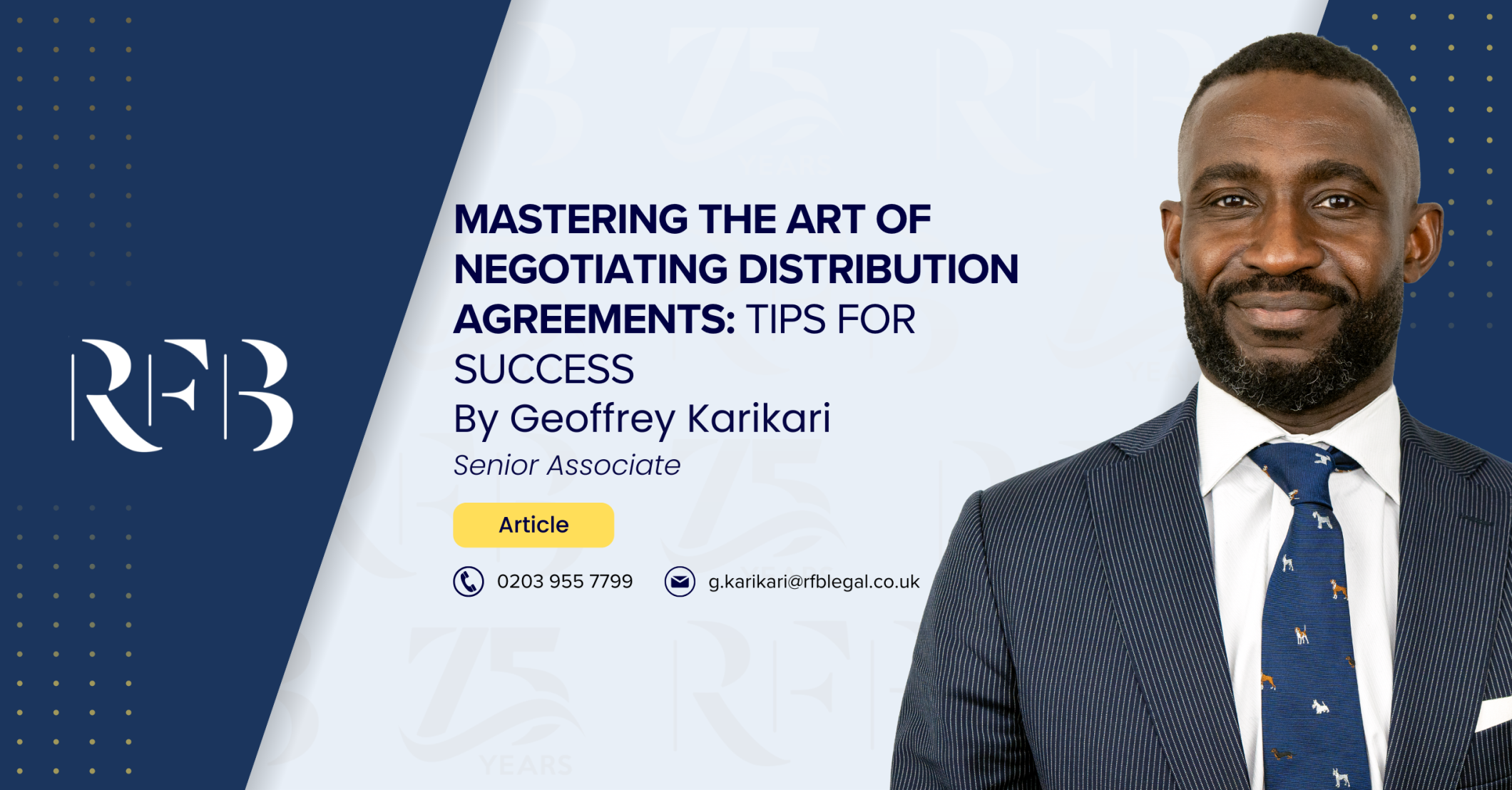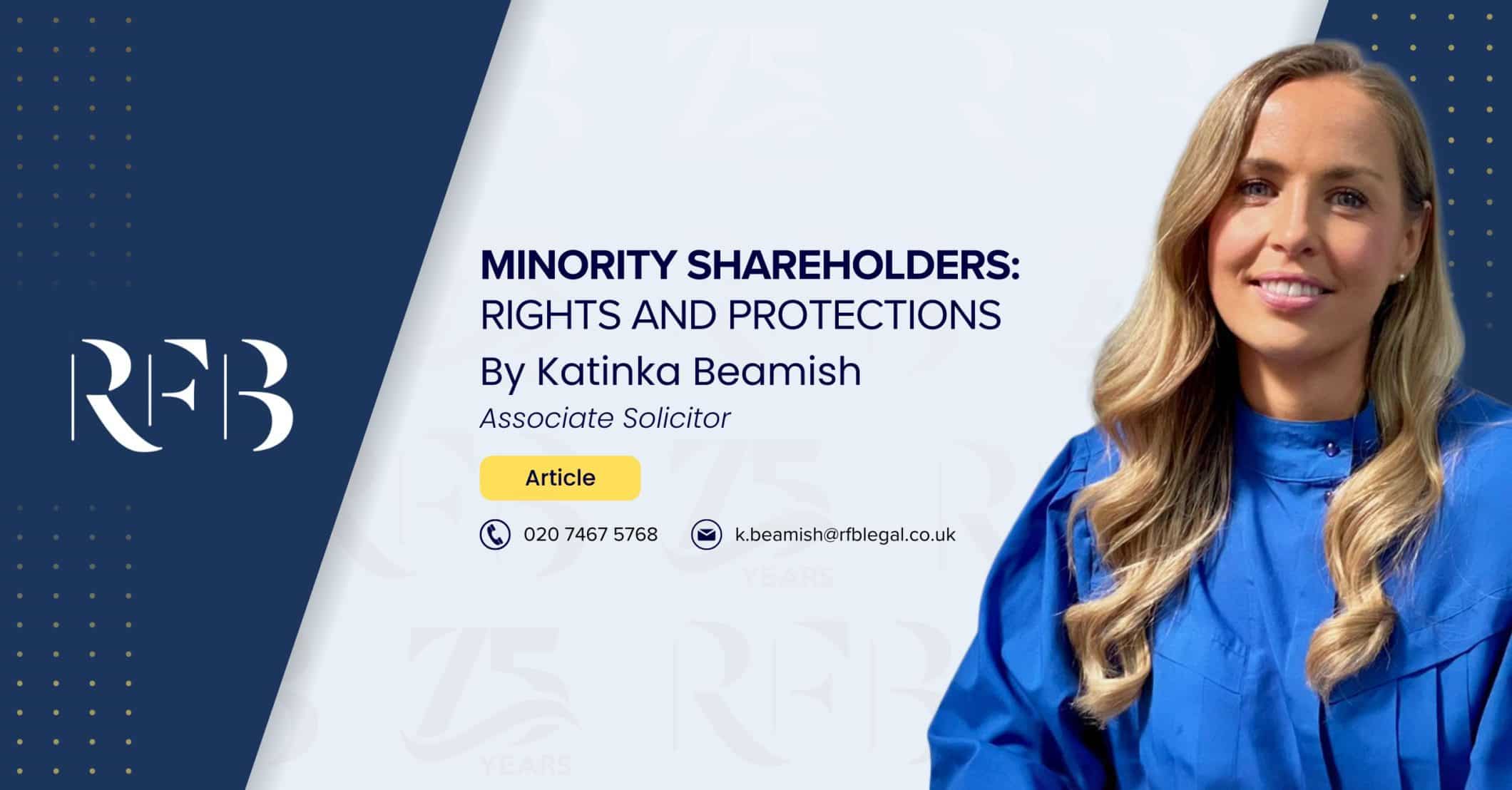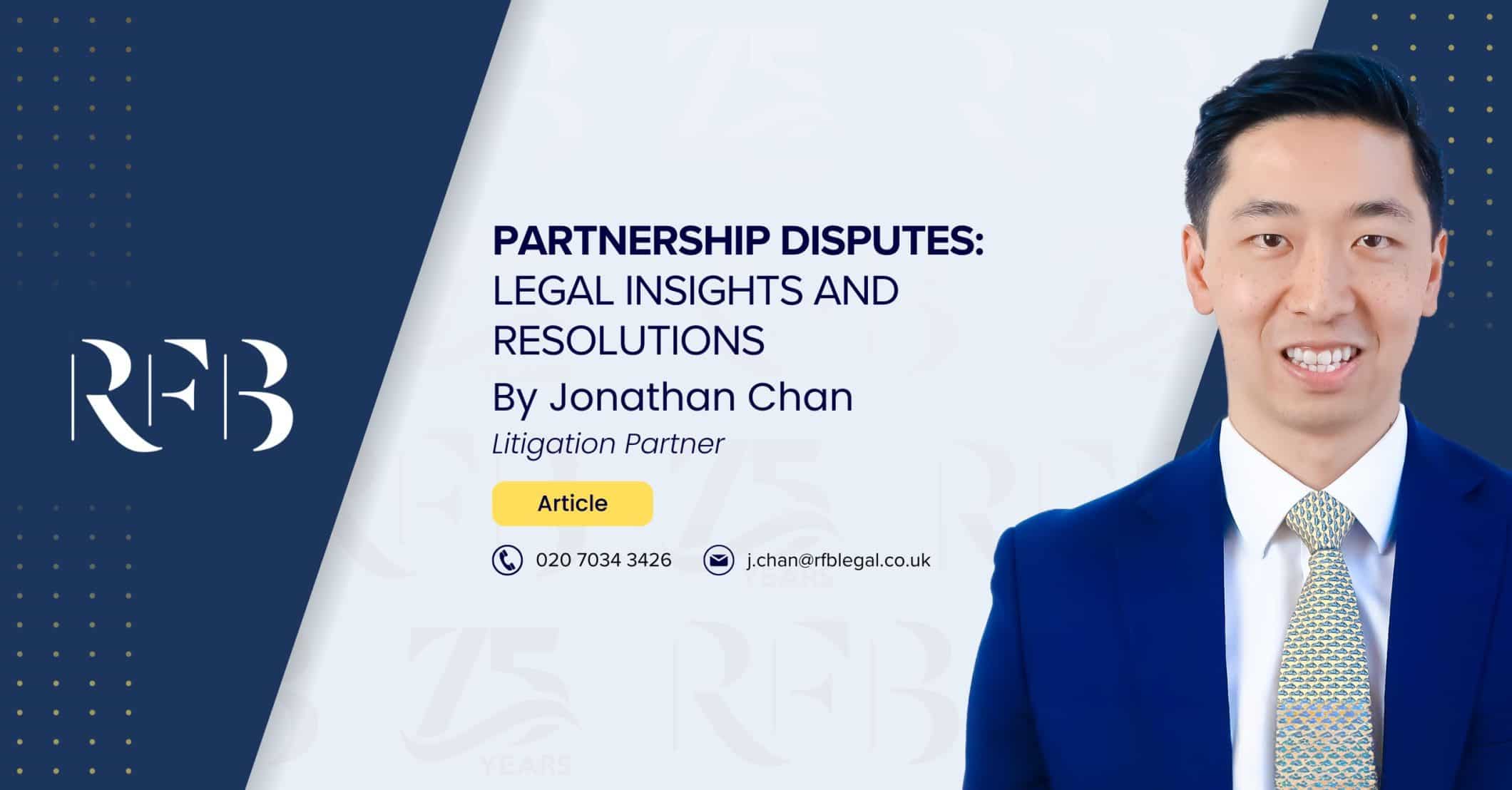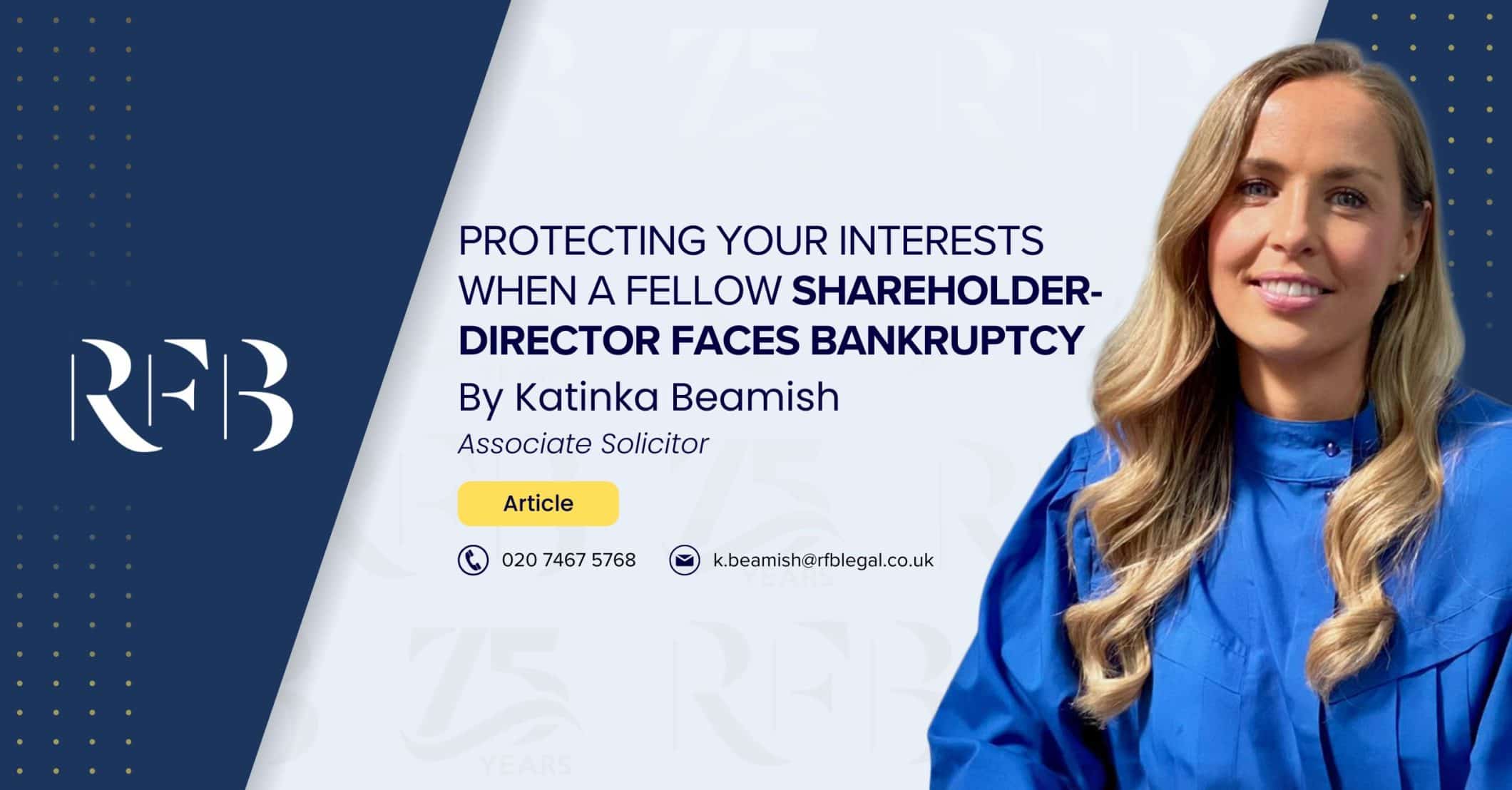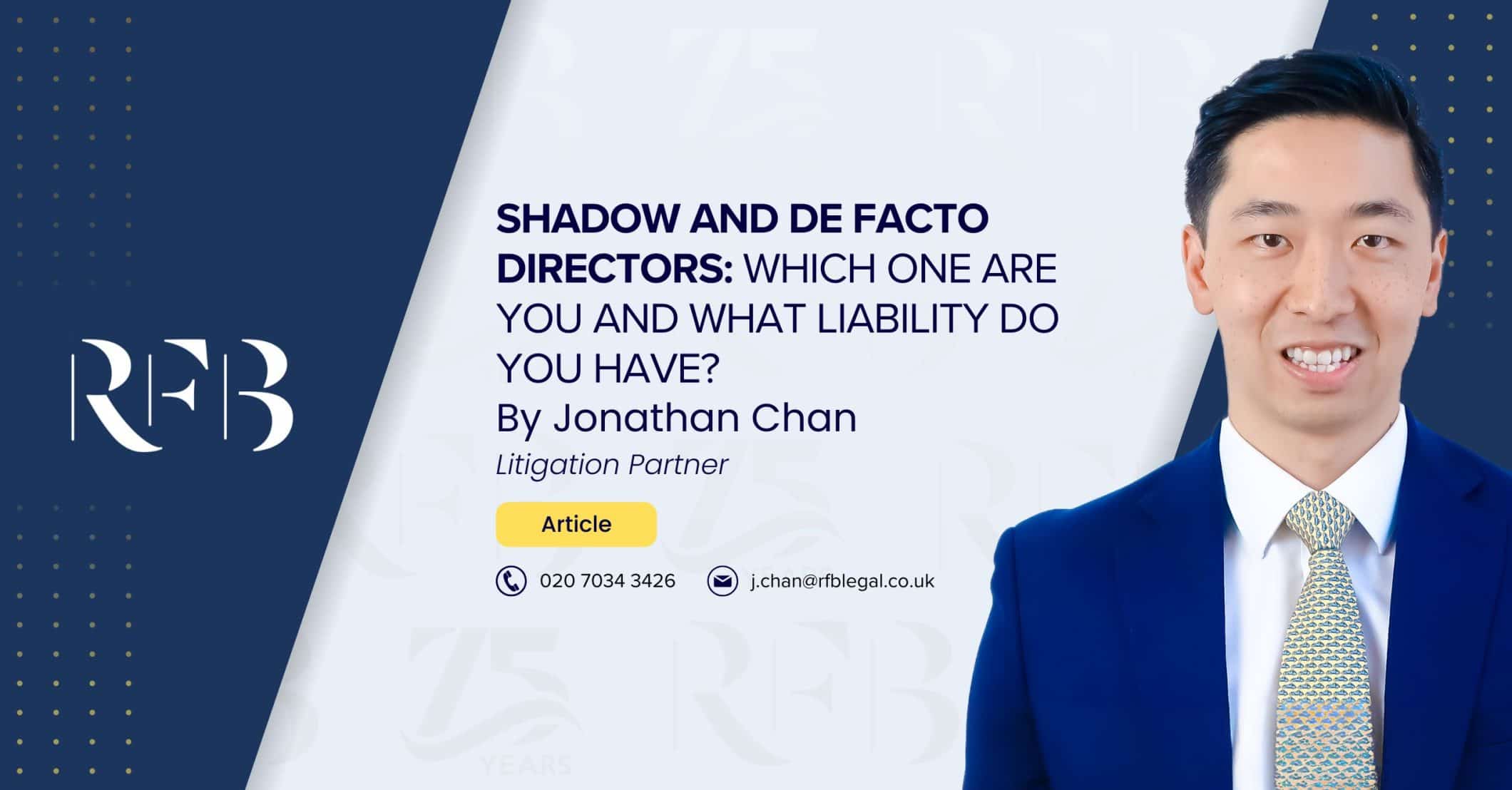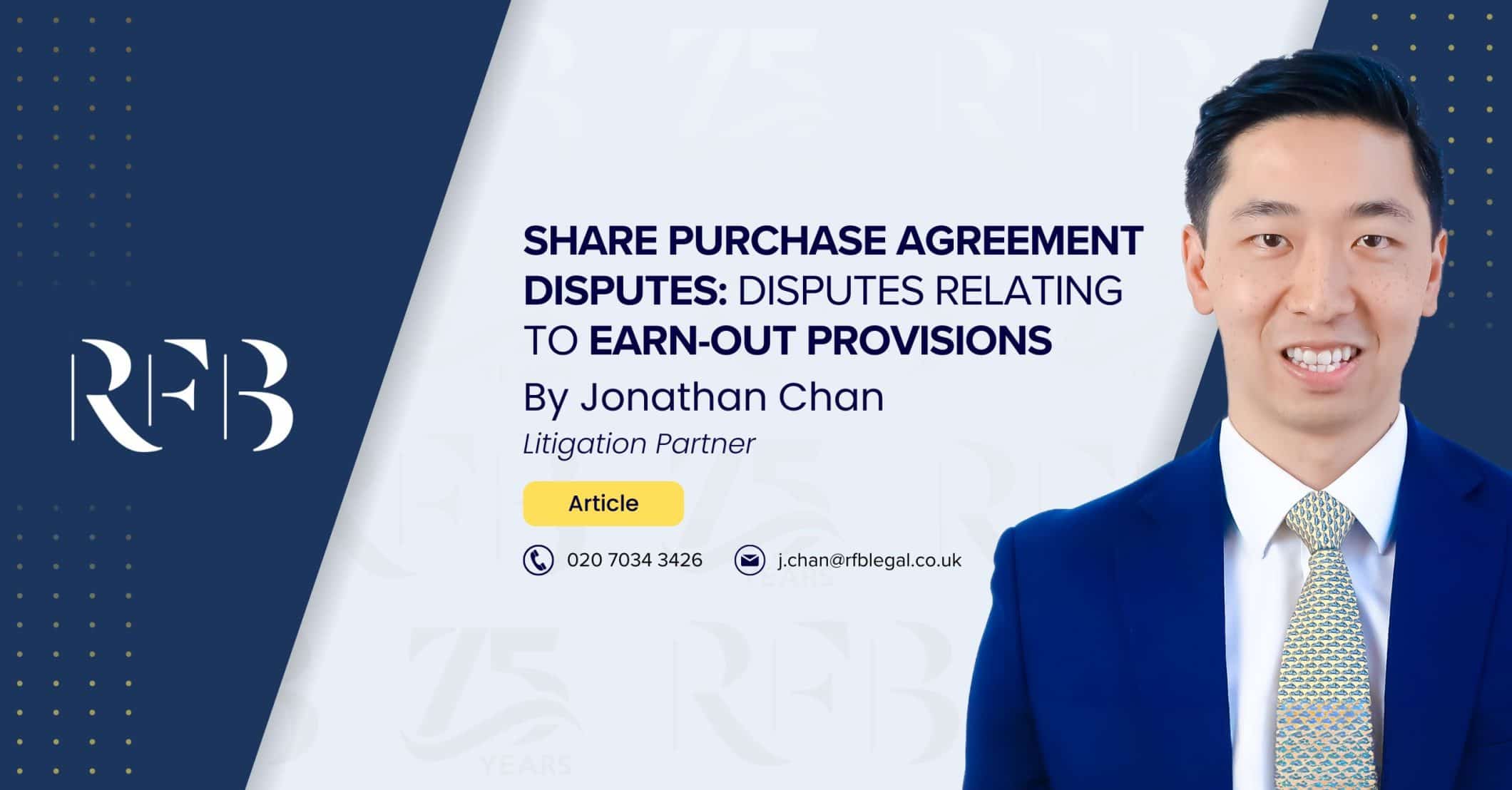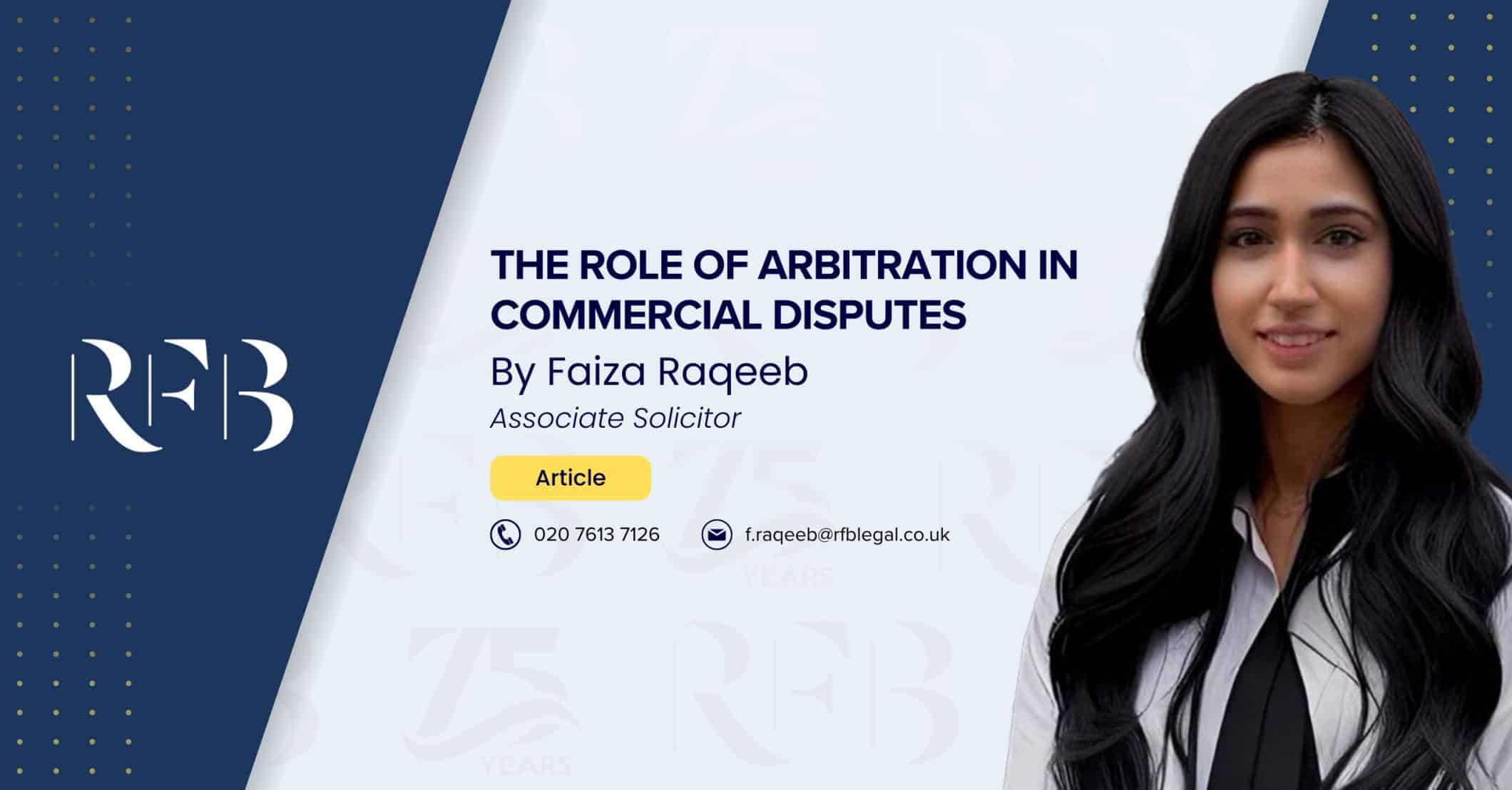À l'heure actuelle, il n'existe pas d'obligation générale implicite de bonne foi dans les contrats de franchise au Royaume-Uni, sauf mention expresse. Toutefois, le concept de bonne foi, qui implique d'agir honnêtement et équitablement, est pertinent et peut être incorporé par des clauses expresses ou déduit de la nature de la relation de franchise. Bien que les tribunaux soient réticents à impliquer une obligation générale, ils peuvent l'envisager dans le contexte de contrats relationnels tels que les franchises, en particulier si l'accord exige une communication et une coopération permanentes.
Il se pourrait que nous ayons atteint un tournant en ce qui concerne l'implication de la bonne foi dans les contrats de franchise, en insistant particulièrement sur la nécessité d'un soutien et d'un renouvellement continus. .
Dans l'affaire APK Communications Ltd & Others v Vodafone Ltd, intentée par plus de 60 anciens et actuels franchisés de Vodafone, le tribunal devra déterminer quand une obligation de bonne foi doit être implicite dans un contrat de franchise, quelles sont les conséquences juridiques potentielles d'une telle décision et dans quelle mesure l'obligation dite de Braganza limite la capacité d'une entreprise à exercer un pouvoir discrétionnaire dans ses relations commerciales. Il s'agit d'une affaire qui fera date, car les plaintes déposées demandent 120 millions de livres sterling de dommages-intérêts et il existe des plaintes préjudiciables, notamment :
La Commission procède à des réductions sans consultation
Les franchisés affirment en outre que Vodafone a recueilli des informations confidentielles sur l'aide financière qu'ils ont reçue du gouvernement britannique pendant la pandémie de COVID-19 et les a utilisées au détriment des franchisés. Selon les plaintes, les données ont été utilisées pour ajuster les paiements de commissions, annulant de fait les bénéfices escomptés de l'aide gouvernementale et transférant l'avantage financier à Vodafone.
Des amendes disproportionnées pour des erreurs mineures
La plainte affirme que Vodafone a imposé des pénalités financières excessives pour des erreurs administratives mineures. Un franchisé a cité une amende de 21 000 livres sterling infligée pour une erreur de facturation de 7 livres sterling, qualifiant la sanction de "grossièrement disproportionnée et punitive".
Utilisation des données d'allégement du gouvernement
Les franchisés affirment en outre que Vodafone a recueilli des informations confidentielles sur l'aide financière qu'ils ont reçue du gouvernement britannique pendant la pandémie de COVID-19. Selon ces allégations, les données ont été utilisées pour ajuster les paiements de commissions, annulant de fait les avantages escomptés de l'aide gouvernementale et transférant l'avantage financier à Vodafone.
La plainte a été déposée le 10 décembre 2024 et, en l'absence de règlement, l'affaire sera probablement jugée en 2026. Le jugement pourrait redéfinir la manière dont les tribunaux traitent les contrats de franchise et, par voie de conséquence, influencer également le droit des accords de distribution.
Le comportement dans l'affaire
Les demandeurs franchisés affirment que Vodafone a agi de manière déloyale, irrationnelle et sans tenir compte de leurs intérêts commerciaux. Tous les plaignants sont - ou étaient - des franchisés de Vodafone qui exploitent des magasins de détail sous marque dans tout le Royaume-Uni. Il ne s'agit pas d'accords de revente informels ; en vertu des accords de franchise, Vodafone exerçait un contrôle important sur des aspects clés de l'activité, notamment l'agencement des magasins, les méthodes de vente, les uniformes du personnel et les normes de service à la clientèle. De ce fait, les franchisés étaient profondément intégrés dans les opérations et les pratiques commerciales de Vodafone Ltd.
Les plaignants affirment que Vodafone a abusé de sa position :
- la réduction des niveaux de commission sans consultation ;
- la récupération de l'allègement tarifaire COVID accordé par le gouvernement ; la limitation de la capacité à renforcer leur bilan et la création d'un déséquilibre dans l'avantage commercial en faveur de Vodafone plutôt que du franchisé.
- imposer des amendes arbitraires ; et
- la résiliation de contrats avec peu d'avertissement et alors que des procédures judiciaires étaient en cours.
Pourquoi la loi est importante : Bonne foi et Bragance
Les deux principes juridiques au centre de ce litige sont tous deux enracinés dans les tentatives modernes d'introduire l'équité dans le droit anglais des contrats, sans remettre en cause l'accent traditionnel mis sur la certitude et la liberté contractuelle.
Bonne foi dans les relations commerciales :
Depuis l'arrêt historique de 2013 dans l'affaire Yam Seng PTE Ltd contre International Trade Corporation Ltd,(l'affaire du parfum Manchester United), les tribunaux britanniques ont prudemment reconnu que certains contrats commerciaux, en particulier ceux régis par des lois spécifiques sur le franchisage, qui contiennent des accords à long terme et de grande confiance au sein de l'entreprise et en son sein, peuvent être assortis d'une obligation implicite de bonne foi. Cette obligation impose aux parties d'agir honnêtement, équitablement et d'une manière qui respecte les attentes légitimes de l'autre partie.
Les franchisés d'APK soutiennent que leurs accords avec Vodafone entrent parfaitement dans cette catégorie de "contrats relationnels". Ils affirment que Vodafone a violé cette obligation en réduisant unilatéralement les paiements et en introduisant de nouvelles pénalités sans préavis ni consultation.
Le principe de Bragance : Les limites du pouvoir discrétionnaire
Même lorsque les contrats accordent à l'une des parties un large pouvoir discrétionnaire - comme la possibilité de modifier les structures de commission ou de résilier les accords - la décision de la Cour suprême du Royaume-Uni dans l'affaire Braganza (requérant) / BP Shipping Limited et autres (défendeurs) a établi que ce pouvoir d'appréciation doit être exercé de manière rationnelle et de bonne foi.
Dans l'affaire Braganza, la Cour a statué qu'un employeur décidant de verser ou non des prestations de décès en cours d'emploi ne pouvait agir de manière arbitraire ; les décisions devaient être fondées sur des preuves, honnêtes et exemptes de considérations non pertinentes. Les franchisés de l'APK soutiennent que les mesures prises par Vodafone - qui vont des pénalités financières aux changements de tarifs et aux résiliations - étaient tellement unilatérales et mal justifiées qu'elles violent ce principe.
Implications pour le secteur de la franchise
Si le tribunal donne raison aux demandeurs sur l'un ou l'autre motif, l'arrêt pourrait avoir des conséquences considérables pour les franchiseurs du Royaume-Uni. Les contrats de franchise sont, par nature, à long terme et interdépendants, exigeant souvent une coopération quotidienne étroite entre le franchiseur et le franchisé au sein du réseau de franchise. Ce sont précisément ces caractéristiques que les tribunaux ont prises en compte lorsqu'ils ont imposé une obligation de bonne foi.
Les franchisés affirment que Vodafone a exercé son pouvoir de manière unilatérale, sans tenir compte de leurs attentes commerciales légitimes. Une décision en leur faveur pourrait établir une attente par défaut d'équité et de transparence dans le droit britannique de la franchise.
En outre, même lorsqu'un contrat de franchise autorise explicitement le franchiseur à modifier les commissions ou à imposer des pénalités, l'obligation de Braganza limite la manière dont ce pouvoir discrétionnaire est exercé. Les tribunaux pourraient commencer à examiner non seulement ce que font les franchiseurs, mais aussi la manière dont ils le font. Les tribunaux pourraient commencer à examiner non seulement ce que font les franchiseurs, mais aussi la manière dont ils le font.
Cela signifie que le franchiseur devra prouver le processus de prise de décision en termes de.. :
- Qui a envisagé le changement ?
- Quelles alternatives ont été examinées ?
- Le point de vue du franchisé a-t-il été entendu ?
Une vision plus large - ne nous limitons pas au franchisage
Bien que l'affaire APK v Vodafone concerne un litige relatif à une franchise, les questions sous-jacentes s'appliquent à la distribution - en particulier aux systèmes de distribution sélective - aux modèles d'agence (en reconnaissant que la bonne foi est un élément fondamental du droit de l'agence en général (dans la mesure où les agents sont concernés) et du règlement sur les agents commerciaux dans la mesure où les mandants et les agents sont concernés), et même à certains accords de licence.
De nombreux fournisseurs contrôlent étroitement la manière dont leur marque est utilisée, qui peut vendre leur produit ou service et dans quelles conditions. Il peut s'agir d'un accord de distribution traditionnel ou d'un accord de revente de plate-forme technologique. Quoi qu'il en soit, les mêmes arguments peuvent s'appliquer en cas de contrôle et de dépendance.
Si le tribunal dans l'affaire APK devait décider que les demandeurs franchisés étaient tenus à une obligation de bonne foi et que le pouvoir discrétionnaire de Vodafone était soumis au critère de rationalité de Braganza, on peut s'attendre à ce que des plaintes similaires soient déposées par des distributeurs ou des agents commerciaux - ainsi que par des franchisés - dont les conditions financières ont été modifiées de manière unilatérale.
Que doivent faire les franchiseurs et les fournisseurs ?
En attendant le jugement, pas de panique ! Cependant, il y a des mesures à prendre :
Examinez vos processus de prise de décision, en particulier lorsque vous avez un pouvoir discrétionnaire sur les salaires, les pénalités ou les seuils de performance. Pourriez-vous les défendre comme étant rationnels et raisonnables ?
Veillez à ce que la consultation et la communication soient réelles et non symboliques - conservez des traces écrites des réunions et des preuves que vous avez tenu compte de l'avis de votre franchisé, de votre distributeur ou de votre agent.
Formez vos équipes - les personnes qui gèrent des réseaux de franchise ou de distribution doivent comprendre que l'équité n'est pas seulement une question de courtoisie commerciale, mais qu'elle pourrait bientôt devenir une obligation légale.
L'importance de cette affaire, quelle que soit son issue
Que la Haute Cour se prononce ou non en faveur des franchisés demandeurs, l'affaire APK v Vodafone créera un précédent. Si la demande aboutit, il est probable qu'elle étende la portée de la bonne foi et de Braganza dans les contrats commerciaux britanniques. Si elle échoue, on peut s'attendre à ce qu'elle clarifie la ligne de démarcation et fournisse un point de référence pour la rédaction et le comportement. Cela pourrait avoir pour effet d'obliger les franchisés à avoir une formation et une compréhension plus stratégiques de leurs opérations distinctes par rapport à la marque de leur franchiseur, par exemple en ce qui concerne les niveaux de commission et la manière dont ils sont fixés, qui peuvent ne pas être indépendants des franchiseurs. De même, la nécessité d'une formation structurée et appropriée dans les opérations de franchise.
N'hésitez pas à contacter Geoffrey Karikari de l'équipe commerciale de RFB (0203 955 7799) pour discuter de vos projets de franchise et de partenariat, ou si vous souhaitez revoir vos documents et contrats de franchise pour voir s'ils correspondent à la pensée actuelle et au fonctionnement de la bonne foi et s'ils sont alignés sur les objectifs de votre entreprise.






